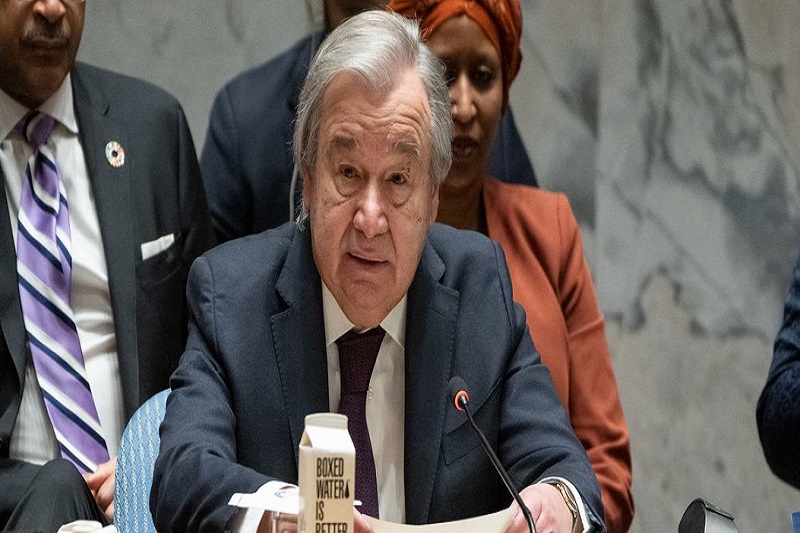On Tuesday, leaders from the United Nations and ambassadors from African countries met in the Security Council Chamber for a high-level conversation about preventing violent extremism in Africa and fighting terrorism in Africa.
The debate was held because of a recent UN report that talks about how terrorist activity is spreading quickly in Africa, which has made a lot of people worried. The goal of the debate was to get the United Nations, the African Union (AU), and regional organizations to work together more. Mozambique’s President Filipe Nyusi led the discussion. Mozambique has been trying for more than five years to stop a violent uprising in its northern region.
The proliferation of terrorist organizations in the Sahel and other parts of Africa has caused the Secretary-General of the United Nations, António Guterres, to express grave concern.
“Despair, poverty, hunger, a lack of basic services, unemployment, and unconstitutional changes in government continue to lay fertile ground for the creeping expansion of terrorist groups to infect new parts of the continent,” he said. Guterres talked about how the UN is committed to working with African countries to get rid of terrorism. As examples, he pointed to projects in the Sahel, the Lake Chad Basin, and Mozambique.
The Global Counter-Terrorism Strategy of the United Nations was made in 2006 and will be looked at for the eighth time in June. This is a very important chance for countries to come up with better ways to deal with the things that lead to terrorism. The review is scheduled to take place in June.
Related Posts
The Secretary-General said that protecting human rights should be the most important part of fighting terrorism. He also said that people shouldn’t take steps that are only meant to make sure security. Such actions could unintentionally make the problem worse by making it more likely that some groups will be left out and left behind.
Azali Assoumani, President of the Comoros and Chairperson of the African Union (AU), has said that there has been a big rise in terrorist attacks across Africa since the Libyan crisis in 2011.
“In this manner, step by step, terrorism gradually took on a greater and greater reach across Africa—from north to south and from east to west.” He said this while speaking through an interpreter, “and the terrorist contagion continues, broadening in almost all regions of Africa.”
Assoumani promised to “spare no effort” to make sure an African Union initiative that was set up in 2030 with the goal of “silencing the guns” was a success.
In his speech, President Nyusi argued for supporting regional solutions to fight terrorism and for a strategy that includes security, legal, and socioeconomic interventions. Additionally, he called for a holistic approach to counterterrorism.
“This experience has been helpful for Mozambique because we are currently fighting terrorism by working together with other countries in the SADC region and between Mozambique and Rwanda.Together, we are fighting terrorism successfully,” he said.
He suggested the establishment of a fund with the purpose of bolstering the local community’s resilience, which would include initiatives to create jobs for young people in Africa and the Middle East.
Nyusi stressed how important it is to help developing countries that have a lot of debt and can’t handle the effects of climate change and other crises well because of it. As a result, these nations are more likely to be affected by extremism, terrorism, and violent conflict.
He said, “We call on the international community to restructure the debt and facilitate access to affordable funding for these high-risk countries so that these countries can emerge from the current crisis.”

